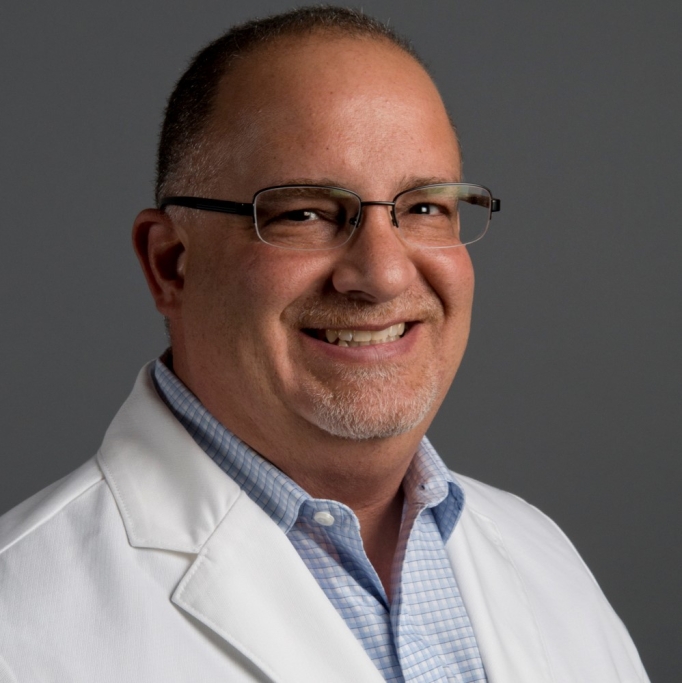Education on Ischemic Strokes by Dr. Sabina

By Dr. William Sabina, Medical Director of Emergency Services at McLeod Health Clarendon
Ischemic stroke, the most common type of stroke, is caused by a blockage in an artery that supplies blood to the brain.
Those with a family history or personal history of stroke are more likely to have an Ischemic stroke. Men are also more likely than women to have an Ischemic stroke. And, African Americans have a higher risk than any other race or ethnic group.
The greatest risk factor for stroke is unmanaged high blood pressure. High blood pressure is known as the “silent killer” since most people do not experience any symptoms. Many are unaware they even have high blood pressure until they receive a diagnosis after a stroke or heart attack occurs. This is why it is important to have your blood pressure checked on a regular basis by a medical professional.
Other risk factors for Ischemic stroke include:
- Atherosclerosis
- High cholesterol
- Atrial fibrillation
- Prior heart attack
- Diabetes
- Smoking
- Being overweight, especially if you have a lot of abdominal fat
Having any of these risk factors or conditions increases your risk for blood clots or fatty deposits, called plaque. As plaque builds up it limits the blood flow in the arteries in the neck or head, allowing blood clots to form. When an artery that supplies blood to the brain is blocked through a narrowing or blood clot, then an Ischemic stroke occurs.
Every minute counts for stroke patients. B.E. F.A.S.T. can lead patients to the stroke treatments they desperately need.
If you think someone may be having a stroke, remember the acronym B.E. F.A.S.T. and do this simple test:
B-BALANCE: Does the person have a loss of balance?
E-EYES: Have they lost vision in one or both eyes?
F-FACE: Does one side of the face droop?
A-ARMS: Ask the person to raise both arms. Does one arm drift downward?
S-SPEECH: Is their speech slurred or strange?
T-TIME: If you observe any of these signs, call 9-1-1 immediately.
If you or a loved one experience any of these symptoms it should prompt you to realize that you may be having a stroke. Once symptoms start it is crucial to get treatment as quickly as possible to make it less likely that any damage becomes permanent. Call 911 and get to the nearest emergency department.
McLeod Health Clarendon is certified as an Acute Stroke Ready Facility by DNV GL Healthcare, receiving their certification in 2019. Additionally, McLeod Regional Medical Center is certified as a Primary Stroke Center by DNV GL Healthcare.
The DNV Stroke Certification is based on standards set forth by the Brain Attack Coalition and the American Stroke Association and affirms that the medical centers address the full spectrum of stroke care – diagnosis, treatment, rehabilitation, and education – and establish clear metrics to evaluate outcomes.
Stroke certification is an acknowledgment to our community that we have the resources and commitment to providing the best possible stroke care. It is a combination of the right equipment, personnel, and training to quickly assess and treat strokes. As an Acute Stroke Ready hospital, we have the ability to administer the intravenous thrombolytic medication called Tenecteplase, which breaks up clots. Guidelines from the American Heart Association and American Stroke Association state that these medications are most effective when given within three hours and in some cases four and a half hours from the start of the stroke.
Stroke is the leading cause of disability in the United States and the fifth leading cause of death. One-third of all patients have their first stroke prior to age 65. This is why the exceptional stroke care we provide for our patients and improving the care overall for our community is so crucial.
To help stay stroke-free:
- know and control your blood pressure
- don’t smoke, stop if you do
- lose weight if needed
- become more active
- identify and manage atrial fibrillation
Work with your primary care provider on how you can live a stroke-free life.
Dr. William Sabina serves as the Medical Director of Emergency Services for McLeod Health Clarendon. Dr. Sabina received his medical degree from Boston University School of Medicine in Boston, Massachusetts. He completed an Emergency Medicine Residency at Brown University Medical School in Providence, Rhode Island. Dr. Sabina cares for patients at McLeod Health Clarendon.
-
McLEOD REGIONAL MEDICAL CENTER FLORENCE
843-777-2000 -
McLEOD DARLINGTON
843-777-1100 -
McLEOD DILLON
843-774-4111 -
McLEOD LORIS
843-716-7000 -
McLEOD SEACOAST
843-390-8100 -
McLEOD CHERAW
843-537-7881 -
McLEOD CLARENDON
803-433-3000



-
McLEOD REGIONAL MEDICAL CENTER FLORENCE
843-777-2000 -
McLEOD DARLINGTON
843-777-1100 -
McLEOD DILLON
843-774-4111 -
McLEOD LORIS
843-716-7000 -
McLEOD SEACOAST
843-390-8100 -
McLEOD CHERAW
843-537-7881 -
McLEOD CLARENDON
803-433-3000
 Find a Doctor
Find a Doctor  Locations
Locations  Services
Services